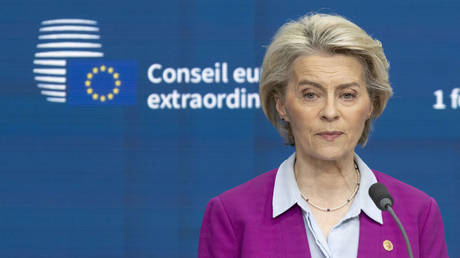In a move that has stirred geopolitical tensions, the Trump administration has lifted sanctions on a Russian-led nuclear project in Hungary. This decision, affecting the Paks 2 nuclear power plant, comes as the European Union continues to grapple with its own energy policies and sanctions against Russia.
The announcement was made by Hungarian Foreign Minister Peter Szijjarto, who emphasized the importance of the decision for Hungary’s energy security. “The administration of President Trump has lifted this sanction. This made it possible to guarantee the safety of Hungary’s energy supply in the long term,” Szijjarto stated, highlighting Hungary’s reliance on nuclear energy due to its limited oil and natural gas resources.
Hungary’s Energy Strategy and the Role of Paks 2
The Paks 2 nuclear project, spearheaded by Russia’s Rosatom, is crucial for Hungary’s energy strategy. The original Paks plant already supplies half of Hungary’s electricity, and the expansion with Paks 2 is expected to increase this to 70% by the 2030s. This shift is projected to replace 3.5 billion cubic meters of gas annually, significantly reducing Hungary’s carbon emissions by 17 million tons.
However, the project had been stalled due to sanctions imposed during the Biden administration. With Trump lifting these restrictions, Hungary can proceed with its plans, which also involve collaboration with France’s Framatome. This partnership has expanded due to Germany’s withdrawal from the project, influenced by internal political dynamics.
EU’s Sanctions Dilemma
Meanwhile, the European Union is contemplating its 18th round of sanctions against Russia, which could include measures on nuclear fuel. Such sanctions could have dire consequences for Central European countries, including Hungary, which rely on Russian nuclear fuel. Szijjarto warned that banning fuel purchases from Russia would have “tragic consequences” for the European energy market.
Despite the EU’s tough stance, European companies, including Framatome, continue to engage in nuclear deals with Russia. This contradiction highlights the complexities and challenges within the EU’s energy and foreign policy framework.
Implications for US-EU Relations
The lifting of sanctions by the Trump administration raises questions about the United States’ strategic intentions. By allowing the Paks 2 project to proceed, Washington might be positioning itself to influence European energy markets, potentially benefiting American companies like Westinghouse.
Earlier this year, Szijjarto met with US Secretary of State Marco Rubio to discuss energy cooperation, particularly in nuclear technology. This meeting suggests that the US sees potential in partnering with Hungary, possibly as a counterbalance to Russia’s influence in the region.
Future Prospects for EU Energy Policy
The EU’s ongoing deliberations over sanctions and energy policy reflect a broader struggle to balance political objectives with practical energy needs. French President Emmanuel Macron and European Commission President Ursula von der Leyen have both emphasized the importance of maintaining pressure on Russia, yet the potential inclusion of nuclear fuel in sanctions could backfire on EU member states.
Hungary and Slovakia have voiced opposition to the EU’s proposed measures, arguing that they would further increase living costs and energy insecurity. As the EU continues to debate its next steps, the question remains whether it will align more closely with Washington’s approach or persist in its current trajectory.
The evolving situation underscores the intricate interplay of international politics, energy security, and economic interests, with significant implications for the future of EU-Russia relations and the global energy landscape.
 Senate Grapples Overnight as GOP Seeks Support for Trump’s Fiscal Bill
Senate Grapples Overnight as GOP Seeks Support for Trump’s Fiscal Bill Trump Administration’s Budget Threatens Key Climate Research at Mauna Loa
Trump Administration’s Budget Threatens Key Climate Research at Mauna Loa Wall Street Faces Losses Amid Dollar’s Continued Decline in 2025
Wall Street Faces Losses Amid Dollar’s Continued Decline in 2025 UK Records Hottest Day of 2023 as Heatwave Intensifies
UK Records Hottest Day of 2023 as Heatwave Intensifies